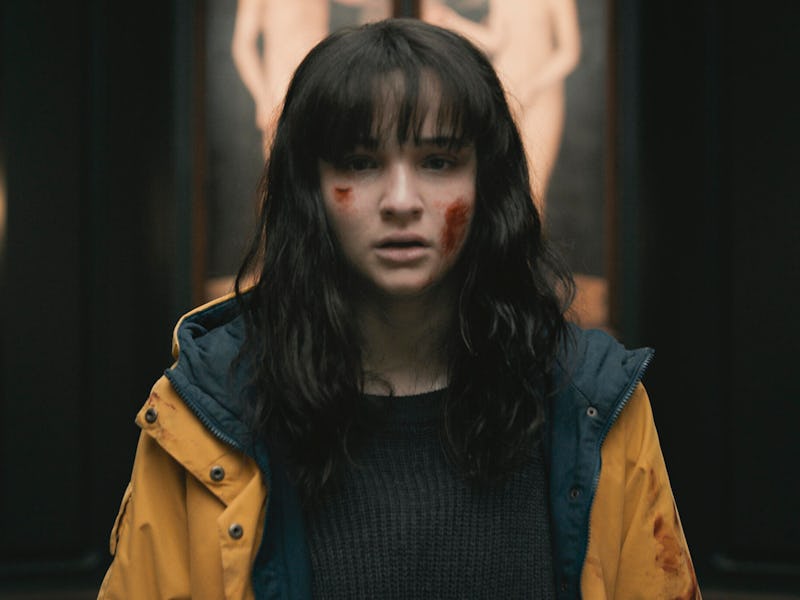Dark Season 3 might be the best series finale in sci-fi history
The most complex show on Netflix manages to tie its own loose ends.

Dark shouldn't have worked as well as it did. It was Netflix's first German-language original series, and, at first glance, it looked like a gamble. A foreign show grappling with quantum physics, time travel, and paradoxes was way too out there for a mainstream audience obsessed with Stranger Things, right?
But thanks in part to Stranger Things' success — and an excellent English dub — the show was a hit. The third and final season, premiering on Netflix Saturday, seemed just as impossible to pull off, but with Season 3, Dark proves its worth one last time.
Over the first two seasons, it's been revealed the main two love interests, Jonas and Martha, are technically aunt and nephew through time travel tomfoolery, another character is her own grandmother, and, in the Season 2 finale, a whole other parallel universe exists. Every scene picks at another part of this tangled knot, and slowly, the plot starts to make sense, even if it remains just as tangled.
Dark Season 3 picks up right where Season 2 left off, with Alt-Martha and Jonas traveling to the alt-world, which gets explored in-depth. It's a stereotypical parallel world: Everything has changed, but everything stays the same as well. It's not an out-of-character move for the show. In fact, the mirror world was foreshadowed from the very beginning in Dark's eerie symmetrical opening titles.
Jonas and Martha
The show isn't limited to just the mirror world, of course. Back on Jonas' world, the apocalypse of June 27, 2020, has rocked the residents of Winden, and the characters we got to know in the first two seasons are scattered across three centuries. For a good half of the season, events are told soap-opera style, switching from storyline to storyline like a late-season episode of Game of Thrones.
Dark has definitely painted itself into a corner. Eight episodes to unravel all the time travel mysteries of the first two seasons is a tall order. Thankfully, Season 3 manages to draw a satisfying conclusion through some deft plot twists and time travel loops. There are more answers than questions by the end, which counts as a success for a show with a complex plot rivaling Lost.
Keeping up with Dark Season 3 is even more of a challenge than with the first two seasons. While the show's trademark "penultimate scene montage of characters set to a sad song" device is handy to recap events in each episode, you might feel compelled to grab a pen and paper just to keep track of what's happening. This may seem annoying, but it's the natural progression of how the show has grown, and fans will likely see this as part of Dark's charm.
Another natural result of Dark's evolution progress is a lot of loose ends. Aside from the alt-world plots, we've already seen what some characters do in the future, so we need to see how they get there. This does pose a bit of an issue in the last handful of episodes, where characters seem to scramble to "fill in the gaps" of the past.
Still, even those episodes exhibit what Dark does best: a slow, deliberate plot that leads up to epic twists. In Season 3, in particular, the use of props and costumes to show connection and differences between characters works wonders. A single prop ends up touching almost every storyline, underlining the recurring theme of how everything is connected.
It's difficult to talk about one aspect of Dark without talking about everything, but the ending is, in one word, satisfying. All the work of tying up loose ends leads to a finale that feels definitive and complete while still keeping in line with the mysterious tone fans expect.
On its own, Dark Season 3 looks too complex, too confusing, and too weirdly paced to be called a good season of television. However, within the context of the first two seasons, it may go down as one of the best final seasons in sci-fi television history, somehow avoiding every trope and downfall from the shows of the past.
Dark Season 3 premieres on Netflix on June 27, 2020.